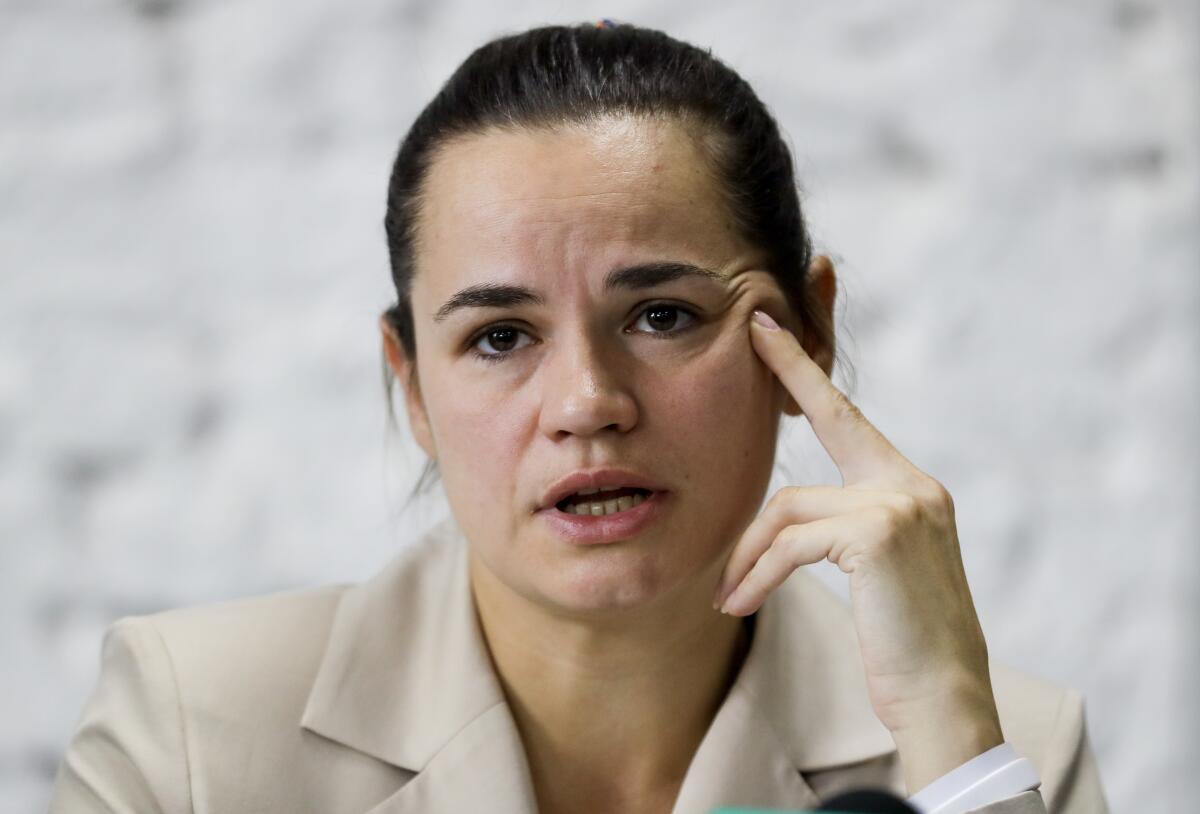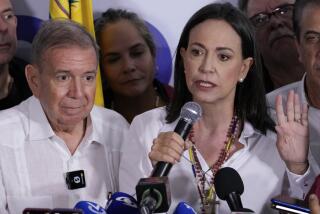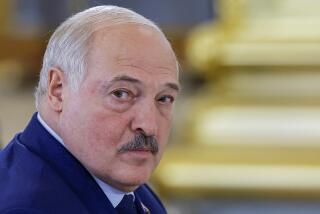Belarusian presidential challenger flees to Lithuania amid protests

MINSK, Belarus — The top opposition candidate in Belarus’ presidential vote who refused to concede her defeat has fled the country amid a massive police crackdown on protests, Lithuania’s foreign minister said Tuesday.
Linas Linkevicius’ said on Twitter that Sviatlana Tsikhanouskaya is now “safe” in Lithuania.
Tsikhanouskaya previously dismissed the official results of Sunday’s election showing authoritarian President Alexander Lukashenko winning a sixth term by a landslide. Thousands of opposition supporters who also protested the results met with a tough police crackdown in Minsk and several other Belarusian cities for two straight nights.
On Monday, a protester died amid the clashes in Minsk and scores were injured as police used tear gas, flash-bang grenades and rubber bullets to disperse the demonstrators. Interior Ministry spokesman Alexander Lastovsky said the victim intended to throw an explosive device, but it blew up in his hand and killed him.
Lukashenko, who has led the ex-Soviet nation of 9.5 million with an iron fist since 1994, derided the opposition as “sheep” manipulated by foreign masters and vowed to continue the tough crackdown on protests despite Western rebukes.
Election officials said Lukashenko won a sixth term in office with 80% of the vote, while Tsikhanouskaya got 10%.
When asked Monday if she was planning to go abroad to avoid being arrested, Tsikhanouskaya said she had no such plan and saw no reason why she would be arrested.
But after submitting her formal demand for a recount to Belarus’ Central Election Commission, she said: “I have made a decision, I must be with my children.”
She had previously sent her children to an unspecified European country after receiving threats.
Tsikhanouskaya, a 37-year-old former English teacher without prior political experience, entered the race after her husband, an opposition blogger who had hoped to run for president, was arrested in May. She has managed to unite fractured opposition groups and draw tens of thousands to her campaign rallies — the largest opposition demonstrations in Belarus since the 1991 collapse of the Soviet Union.
“We don’t agree with [the election results], we have absolutely opposite information,” Tsikhanouskaya told the Associated Press on Monday. “We have official protocols from many poll stations, where the number of votes in my favor are many more times than for another candidate.”
Economic damage caused by the coronavirus outbreak and Lukashenko’s swaggering response to the pandemic, which he airily dismissed as “psychosis,” has fueled broad anger, helping swell the opposition ranks. The post-election protest, in which young demonstrators — many of them teenagers — confronted police, marked a previously unseen level of violence.
The police crackdown on protesters drew harsh criticism from the European Union and the United States and will likely complicate Lukashenko’s efforts to mend ties with the West amid tensions with his main ally and sponsor, Russia.
U.S. Secretary of State Michael R. Pompeo said in a statement that the election was not “free and fair,” and added: “We strongly condemn ongoing violence against protesters and the detention of opposition supporters.”
The European Union condemned the police crackdown and called for an immediate release of all those detained.
In a joint statement, EU foreign policy chief Josep Borrell and the EU commissioner responsible for relations with Europe’s close neighbors, Oliver Varhelyi, lamented that “the election night was marred with disproportionate and unacceptable state violence against peaceful protesters.”
More to Read
Sign up for Essential California
The most important California stories and recommendations in your inbox every morning.
You may occasionally receive promotional content from the Los Angeles Times.










